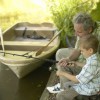 Learning to be mindful is a powerful skill that can help you face the stresses of day-to-day life and improve both your psychological and physical health. Because you don’t need any equipment to practice mindfulness, you can practice it discreetly anywhere, at any time. This 6-page fact sheet was written by Parth Naik, Victor Harris, and Larry Forthun, and published by the UF Department of Family Youth and Community Sciences, September 2013.
Learning to be mindful is a powerful skill that can help you face the stresses of day-to-day life and improve both your psychological and physical health. Because you don’t need any equipment to practice mindfulness, you can practice it discreetly anywhere, at any time. This 6-page fact sheet was written by Parth Naik, Victor Harris, and Larry Forthun, and published by the UF Department of Family Youth and Community Sciences, September 2013.
http://edis.ifas.ufl.edu/fy1381
Tag: Larry Forthun
When the Kids Move Back Home
 Recent trends show that more and more adult children are returning to live with their parents. With intergenerational cohabitation on the rise, it’s a good idea to examine the “what-ifs” before the doorbell rings. If you find yourself making up spare rooms for your grown children or even their children, you will be glad you thought about the issues in advance. This publication discusses the potential challenges and practical matters you need to know about if your adult children move back home. This 4-page fact sheet was written by Lynda Spence and Larry Forthun, and published by the UF Department of Family Youth and Community Sciences, July 2013.
Recent trends show that more and more adult children are returning to live with their parents. With intergenerational cohabitation on the rise, it’s a good idea to examine the “what-ifs” before the doorbell rings. If you find yourself making up spare rooms for your grown children or even their children, you will be glad you thought about the issues in advance. This publication discusses the potential challenges and practical matters you need to know about if your adult children move back home. This 4-page fact sheet was written by Lynda Spence and Larry Forthun, and published by the UF Department of Family Youth and Community Sciences, July 2013.
http://edis.ifas.ufl.edu/fy1376
Kinship Caregivers: Understanding Children and the Military Deployment Cycle (FCS2330/FY1368)
 Deployment occurs in almost every branch of the military, and the experience differs for each family and each family member. To reflect the diversity of experiences, military professionals have proposed various models of the deployment cycle to assist families in the transition. There are at least five phases that are common across models: pre-deployment, deployment, sustainment, preparation (also known as redeployment), and reunification (or home-coming). Recognizing that each family is unique, this deployment cycle is intended not as a rule-book but as a helpful guide to families as they experience deployment of a parent. This 4-page fact sheet was written by Elizabeth Thomas and Larry F. Forthun, and published by the UF Department of Family Youth and Community Sciences, March 2013.
Deployment occurs in almost every branch of the military, and the experience differs for each family and each family member. To reflect the diversity of experiences, military professionals have proposed various models of the deployment cycle to assist families in the transition. There are at least five phases that are common across models: pre-deployment, deployment, sustainment, preparation (also known as redeployment), and reunification (or home-coming). Recognizing that each family is unique, this deployment cycle is intended not as a rule-book but as a helpful guide to families as they experience deployment of a parent. This 4-page fact sheet was written by Elizabeth Thomas and Larry F. Forthun, and published by the UF Department of Family Youth and Community Sciences, March 2013.
http://edis.ifas.ufl.edu/fy1368
Kinship Caregivers: Communicating with Children about a Parent’s Deployment (FCS2329/FY1367)
 The deployment of a military parent is undoubtedly a difficult time for children. This is especially true if the military child is being cared for by a relative, or kinship parent such as a grandparent, aunt, uncle, or older sibling. The child may have to experience a kind of personal deployment from their own home. To help children cope with these changes, it is important for the kinship parent to effectively communicate with the child about the deployment and the deployed parent. This will safeguard against emotional and behavioral problems and can lead to improvements in the child’s overall sense of well-being. This 3-page fact sheet was written by Elizabeth Thomas and Larry F. Forthun, and published by the UF Department of Family Youth and Community Sciences, March 2013.
The deployment of a military parent is undoubtedly a difficult time for children. This is especially true if the military child is being cared for by a relative, or kinship parent such as a grandparent, aunt, uncle, or older sibling. The child may have to experience a kind of personal deployment from their own home. To help children cope with these changes, it is important for the kinship parent to effectively communicate with the child about the deployment and the deployed parent. This will safeguard against emotional and behavioral problems and can lead to improvements in the child’s overall sense of well-being. This 3-page fact sheet was written by Elizabeth Thomas and Larry F. Forthun, and published by the UF Department of Family Youth and Community Sciences, March 2013.
http://edis.ifas.ufl.edu/fy1367
Strengthening Families: Parental Resilience (FCS2304/FY1243)
 Through building resilience, parents and other family members will be better prepared to manage the inevitable challenges in life. The strategies recommended in this 3-page fact sheet can help you further develop these positive attributes. Written by Larry F. Forthun, Samantha Carannante, and David C. Diehl, and published by the UF Department of Family Youth and Community Sciences, December 2011.
Through building resilience, parents and other family members will be better prepared to manage the inevitable challenges in life. The strategies recommended in this 3-page fact sheet can help you further develop these positive attributes. Written by Larry F. Forthun, Samantha Carannante, and David C. Diehl, and published by the UF Department of Family Youth and Community Sciences, December 2011.
http://edis.ifas.ufl.edu/fy1243
Strengthening Families: Social Connections (FCS2305/FY1244)
 Whether it is family members, neighbors, friends, or coworkers, it is vital that parents have people in their lives that can provide social support. This 3-page fact sheet suggests several ways to create new social connections and improve existing ones. Written by Larry F. Forthun, Samantha Carannante, and David C. Diehl, and published by the UF Department of Family Youth and Community Sciences, December 2011.
Whether it is family members, neighbors, friends, or coworkers, it is vital that parents have people in their lives that can provide social support. This 3-page fact sheet suggests several ways to create new social connections and improve existing ones. Written by Larry F. Forthun, Samantha Carannante, and David C. Diehl, and published by the UF Department of Family Youth and Community Sciences, December 2011.
http://edis.ifas.ufl.edu/fy1244
Strengthening Families: Knowledge of Parenting and Child Development (FCS2306/FY1245)
 The list of topics that parents need to master is almost endless, starting before birth and extending all the way to adulthood. Rather than trying to answer all of the questions parents might have, this 3-page fact sheet focuses on the ways in which parents can explore their own parenting and find information and solutions that work for them. Written by David C. Diehl, Jessica N. Wente, and Larry F. Forthun, and published by the UF Department of Family Youth and Community Sciences, December 2011.
The list of topics that parents need to master is almost endless, starting before birth and extending all the way to adulthood. Rather than trying to answer all of the questions parents might have, this 3-page fact sheet focuses on the ways in which parents can explore their own parenting and find information and solutions that work for them. Written by David C. Diehl, Jessica N. Wente, and Larry F. Forthun, and published by the UF Department of Family Youth and Community Sciences, December 2011.
http://edis.ifas.ufl.edu/fy1245
Strengthening Families: Concrete Support in Times of Need (FCS2307/FY1246)
 All families need help sometimes. In times of need, families will often turn to other family members or friends, but some needs may require more concrete financial or material support. This 3-page fact sheet lists many state and local programs that provide concrete support to Florida families who qualify. Written by Larry F. Forthun, Samantha Carannante, and David C. Diehl, and published by the UF Department of Family Youth and Community Sciences, December 2011.
All families need help sometimes. In times of need, families will often turn to other family members or friends, but some needs may require more concrete financial or material support. This 3-page fact sheet lists many state and local programs that provide concrete support to Florida families who qualify. Written by Larry F. Forthun, Samantha Carannante, and David C. Diehl, and published by the UF Department of Family Youth and Community Sciences, December 2011.
http://edis.ifas.ufl.edu/fy1246
Strengthening Families: Social and Emotional Competence (FCS2308/FY1247)
![Figure 2 [mothers playing with children]](http://edis-news.wp.ifas.ufl.edu/files/2012/01/socialcompetence-150x150.jpg) Parents foster positive social and emotional development through their everyday interactions with children. This 3-page fact sheet lists some things you can do to support the most positive social and emotional development of your children. Written by David C. Diehl, Jessica Wente, and Larry F. Forthun, and published by the UF Department of Family Youth and Community Sciences, December 2011. http://edis.ifas.ufl.edu/fy1247
Parents foster positive social and emotional development through their everyday interactions with children. This 3-page fact sheet lists some things you can do to support the most positive social and emotional development of your children. Written by David C. Diehl, Jessica Wente, and Larry F. Forthun, and published by the UF Department of Family Youth and Community Sciences, December 2011. http://edis.ifas.ufl.edu/fy1247
Strengthening Families: Nurturing and Attachment (FCS2309/FY1248)
 While nurturing comes naturally for many parents, it can be helpful to think about the concrete ways in which parents can strengthen their bonds with their children. This 3-page fact sheet offers some ideas of things that you can do to help foster nurturing and attachment between you and your child. Written by David C. Diehl, Jessica N. Wente, and Larry F. Forthun, and published by the UF Department of Family Youth and Community Sciences, December 2011. http://edis.ifas.ufl.edu/fy1248
While nurturing comes naturally for many parents, it can be helpful to think about the concrete ways in which parents can strengthen their bonds with their children. This 3-page fact sheet offers some ideas of things that you can do to help foster nurturing and attachment between you and your child. Written by David C. Diehl, Jessica N. Wente, and Larry F. Forthun, and published by the UF Department of Family Youth and Community Sciences, December 2011. http://edis.ifas.ufl.edu/fy1248
Helping Your Teenager Discover Spirituality (FCS2303/FY1228)
Many life transitions and transformations occur during the teen years (ages 11-19). Bodies mature, thinking ability improves, and teens learn to manage many new emotions. Teens are striving to “find themselves” and to answer the question, “Who am I?” The answers to such questions often include a spiritual search for meaning and purpose in life. This 2-page fact sheet was written by Larry Forthun and Angelica Johns, and published by the UF Department of Family Youth and Community Sciences, May 2011.
http://edis.ifas.ufl.edu/fy1228
Discovering Spirituality: A Guide for Teens (FCS2302/FY1227)
Who am I? What is my purpose? Have you ever asked yourself these questions? You’re not alone. Every teenager at one time or another has asked these questions. It’s the answers that are hard to figure out. Searching for a sense of meaning and purpose in life is not easy. However, you can do a few things that will help you discover the answers. One of the most important is discovering your spirituality. This 2-page fact sheet was written by Larry Forthun and Angelica Johns, and published by the UF Department of Family Youth and Community Sciences, May 2011.
http://edis.ifas.ufl.edu/fy1227
FCS8920/FY1190 Managing Food-Related Family Disagreements
FCS8920, a 3-page illustrated fact sheet by Emily A. Minton, Karla P. Shelnutt, and Larry Forthun, helps families understand the causes of family disagreements, effective parenting styles, how to resolve conflicts with good communication, and the benefits of conflict. Published by the UF Department of Family Youth and Community Sciences, June 2010.
http://edis.ifas.ufl.edu/fy1190
Grandparents Raising Grandchildren series
Revised and Expanded! FCS2186-2191, a series of 1-4 page fact sheets by Millie Ferrer-Chancy, Larry Forthun, and Angela Falcone, with contributions by Joe Pergola and Maisie Ross, addresses challenges and issues grandparents may encounter when raising grandchildren. Includes references. Published by the UF Department of Family Youth and Community Sciences, August 2009.
- FCS2186/FY427 Understanding Reasons for Misbehavior
- FCS2186a/FY1112 A Crash Course in Child Development
- FCS2187/FY429 Guidance and Discipline
- FCS2188/FY431 Tips for Navigating the System
- FCS2188a/FY1125 Financial Assistance
- FCS2188b/FY1123 Health Care Assistance
- FCS2188c/FY1124 School and Educational Assistance
- FCS2189/FY433 Custody Options
- FCS2190/FY435 Understanding Relationships
- FCS2190a/FY1113 Characteristics of Strong Families
- FCS2191/FY437 Building Strong Families
- FCS2191a /FY1114Taking Care of Yourself
http://edis.ifas.ufl.edu/topic_book_grandparents_raising_grandchildren
FCS-8670/FY1060 Family Nutrition: A RECIPE for Good Communication
FCS-8670, a 5-page fact sheet by Larry Forthun and Matthew Kaplan, uses the “RECIPE” acronym to describe the ingredients for good communication about nutrition in the family: reflective listening, encouragement, compromise and cooperation, “I” messages, practice, and engagement. Includes references. Published by the UF Department of Family Youth and Community Sciences, August 2008.
http://edis.ifas.ufl.edu/FY1060
FCS-8871/FY1061 Family Nutrition: The Truth About Family Meals
FCS-8871, a 4-page fact sheet by Larry Forthun, summarizes recent research indicating the importance about family meals, including trends over the last several decades, effects on family togetherness, communication, well-being, and nutrition. Also discussed are family eating practices to avoid, and strategies for getting the whole family together for dinner. Includes references. Published by the UF Department of Family Youth and Community Sciences, September 2008.
http://edis.ifas.ufl.edu/FY1061
FCS-8869/FY1059 Family Nutrition: Parenting and Family Life
FCS-8869, a 6-page fact sheet by Larry Forthun, looks at three ways family can influence a child’s weight status: parental feeding practices and behavior, parenting style, and overall family functioning, and provides recommendations for improving family health and nutrition. Includes references. Published by the UF Department of Family Youth and Community Sciences, August 2008.
http://edis.ifas.ufl.edu/FY1059